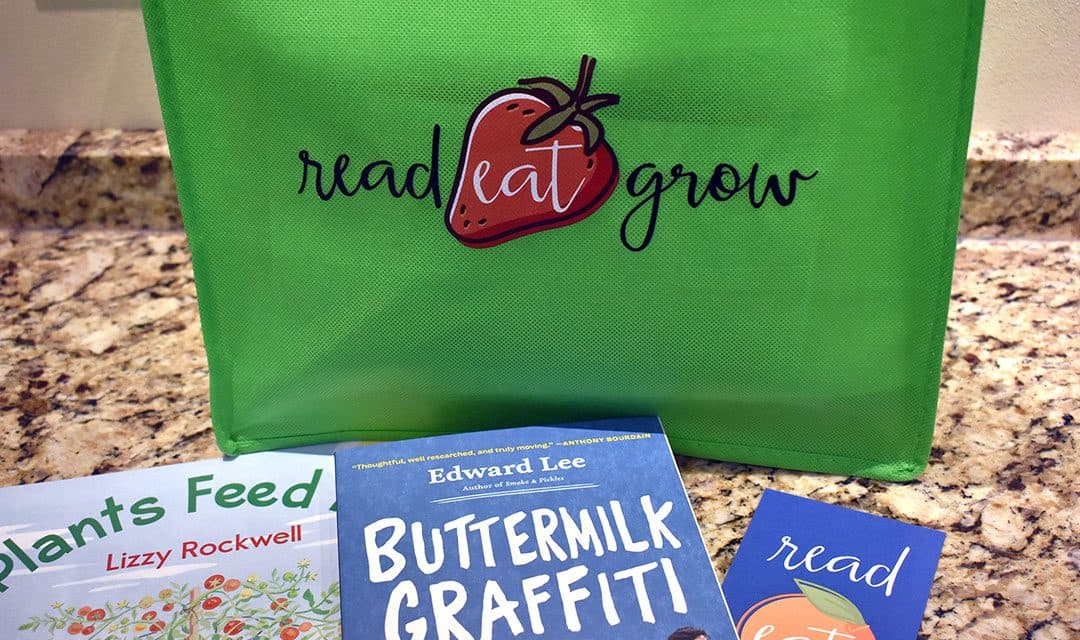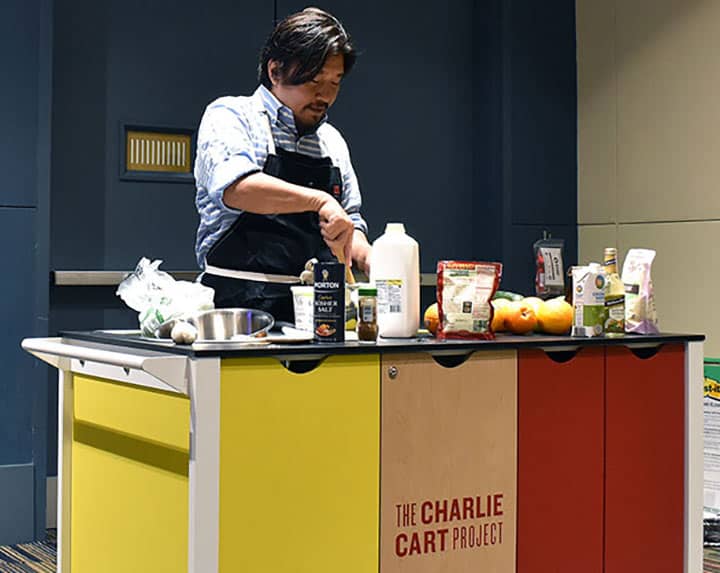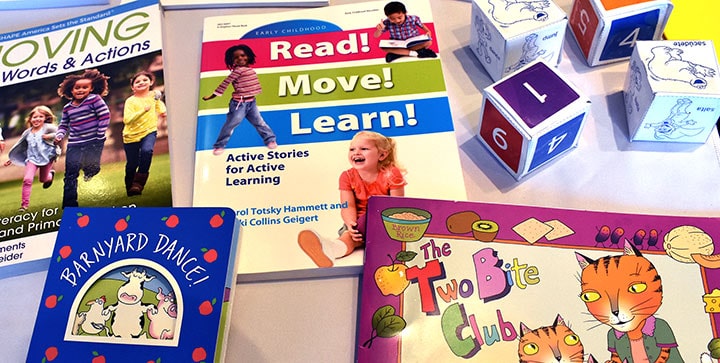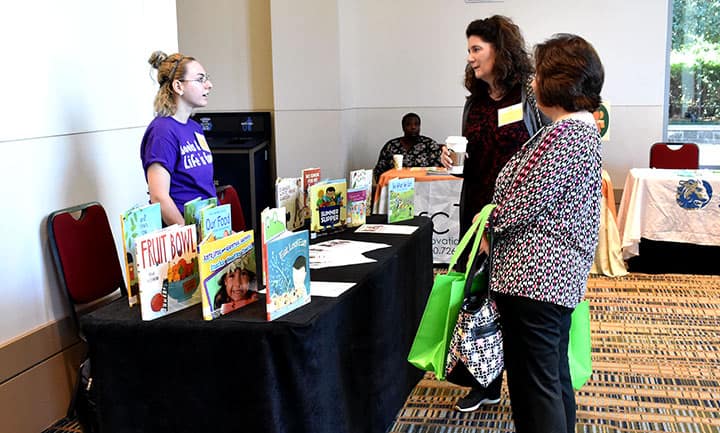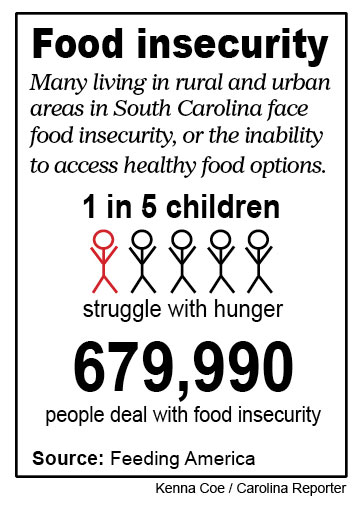The Read Eat Grow event at the Columbia Metropolitan Convention Center discussed food literacy across South Carolina. Event attendees received copies of “Plants Feed Me” by Lizzy Rockwell and “Buttermilk Graffiti” from Edward Lee, the two keynote speakers.
BY MIAH NOWICKI and KENNA COE
Coming to a rural library near you – food carts that will help people learn how to prepare healthy meals. Read Eat Grow, a new statewide initiative of the South Carolina State Library, is introducing the kitchen-on-wheels.
Four carts, known as Charlie Carts, were implemented in rural and small county libraries in the summer. The carts will continue to circulate around South Carolina throughout the upcoming months. They provide hands-on learning on how to cook fresh food for those who don’t have the resources and kitchens. The Read Eat Grow initiative is designed to help public libraries do programming around food literacy.
But what is food literacy?
Rebecca Antill, the youth services consultant for the South Carolina State Library, said food literacy is defined as telling a story of our food. It’s connecting learning with food and nutrition.
“It’s a large, diverse story involving everything from food deserts and food swamps, to the food insecurities that so many people here in South Carolina face,” Antill said.
Rural South Carolina has several areas with food deserts, which are places where quality food is difficult to purchase. This also goes for food swamps, which are places where fast food restaurants outnumber healthy choices.
Ellen Dunn, the public information coordinator for the South Carolina State Library, said that we have become a nation of convenience foods.
“What the library and I learned is that if we can educate people through library programs, you can utilize these fresh ingredients that are grown here in your home state and feed your family a healthy nutrition-filled meal,” said Dunn.
South Carolina has the 14th highest obesity rate in the nation and the 24th highest obesity rate for youth, with ages ranging from 10 to 17, according to The State of Obesity, an annual report issued by two nonprofit organizations. South Carolina’s poor literacy rate is another factor.
“Part of it is because people out in these rural communities have not learned what it means to prepare their own food,” Dunn said.
Food insecurity in South Carolina is more common than people may assume. In South Carolina, there are almost 700,000 people struggling with hunger on a daily basis, according to Feeding America. Dunn said that people don’t realize they pass at least two people each day that have food insecurity.
“You have that in the back of your mind that, yes, there are people that are hungry, but when we go home, we open that refrigerator and pantry and food is present. For others, this may not be the case,” said Dunn.
The Read Eat Grow Kickoff Event allows librarians, experts and community partners to share their expertise on the crucial issues of food and literacy.
Chef Edward Lee, a well-known Brooklyn-born chef, made an appearance at the event. He showcased the Charlie Cart, the kitchen-on-wheels, during a cooking demonstration.
The Charlie Cart Project is a food education and nutrition program that includes the mobile kitchen, equipment, recipes and training. Kitchen-In-a-Box kits were created by the library, which are smaller versions of the Charlie Cart for libraries that do not have the space. The purpose of the cart and kits are to teach adults and children how to make the healthiest food choices they possibly can.
“If kids can go to school and families can function well-fed and well-nourished, they have a better opportunity to learn which gives them a better opportunity for the rest of their lives,” said Dunn.
Antill wants to make a difference in the numbers and see the statistics change for the better. The library is going to be working with the Charlie Cart Project out of California and they are hoping to get a grant to research what is being done in South Carolina.
The library was able to make connections with partners around the state for the kickoff event, including the Clemson Youth Institute, Midlands Department of Health and Environmental Control and State Farm Bureau.
“The point of the kickoff event is to bring everyone together who we have been working with and say, ‘We have heard you, we are excited about it too, here’s where we are going from here,’” Antill said. “This is just the beginning.”
Edward Lee, chef and author from Louisville, Kentucky, used a Charlie Cart to make an ambrosia salad from fresh ingredients. The Charlie Cart Project brings kitchens-on-wheels to schools and shows kids how to make healthy food choices.
Books on display at the SNAP-Ed table promote healthy eating and an active lifestyle. SNAP-Ed is a nutrition education program that specifically targets at-risk youth.
The Read Eat Grow event welcomed librarians, teachers and others involved in the school system to discuss issues with food insecurity and learn about resources across the state.




